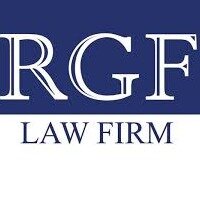Best Real Estate Contracts and Negotiations Lawyers in San Juan
Share your needs with us, get contacted by law firms.
Free. Takes 2 min.
Free Guide to Hiring a Real Estate Lawyer
List of the best lawyers in San Juan, Puerto Rico
About Real Estate Contracts and Negotiations in San Juan, Puerto Rico
Real estate contracts and negotiations in San Juan, Puerto Rico, encompass a complex legal framework that governs the rights and obligations of buyers, sellers, and other parties involved in property transactions. These contracts can include purchase agreements, lease agreements, construction contracts, and more. They require careful consideration of local laws, the specific terms of the agreement, and the impact of these terms on all parties involved. Expertise in this field is crucial to navigate the intricacies of property transactions effectively.
Law in San Juan, Puerto Rico: An Overview
The legal landscape in San Juan regarding real estate contracts and negotiations is primarily influenced by both local and federal laws. The Constitución del Estado Libre Asociado de Puerto Rico and the Civil Code of Puerto Rico are two foundational texts that provide the legal framework for real estate transactions. These laws address issues such as property ownership, transfers, leases, and contractual obligations. Additionally, case law and administrative rulings also play significant roles in shaping real estate practices in San Juan.
Why You May Need a Lawyer
Engaging a lawyer is often essential in real estate transactions for several reasons:
- Legal Expertise: A lawyer can provide crucial knowledge of local laws and ensure that contracts adhere to all legal standards.
- Contract Review: Lawyers ensure that contracts are thorough and protect your interests by identifying potential pitfalls or unfavorable terms.
- Negotiation Support: Experienced lawyers can aid in negotiating better terms and conditions to benefit their clients.
- Dispute Resolution: In case of disputes or misunderstandings, a lawyer can facilitate negotiations or represent you in legal proceedings.
- Complex Transactions: For complex transactions such as commercial purchases or development agreements, legal guidance is invaluable.
Local Laws Overview
The local laws in San Juan that specifically pertain to real estate contracts and negotiations include various statutes found in the Civil Code. Key factors include:
- Property Registration: Ensures that all property transactions are duly recorded with the Registro de la Propiedad.
- Contractual Requirements: Contracts must meet specific requirements to be enforceable, such as clear consent of all parties and a valid object.
- Financing and Mortgages: Governed by the Ley Hipotecaria, which details the rights and responsibilities of borrowers and lenders.
- Tenant and Landlord Rights: Detailed in the local housing laws that regulate rental agreements and tenant protections.
- Zoning Laws: Regulate land use and development, impacting what can be done with a property.
Frequently Asked Questions
What is the role of a notary public in real estate transactions in San Juan?
In Puerto Rico, notaries are legal professionals with specific roles in authenticating real estate documents and transactions. They ensure that contracts meet all legal requirements and accurately reflect the intentions of the parties involved.
Can I use an out-of-state attorney for my San Juan real estate transaction?
While you can hire an out-of-state attorney, it is generally advisable to choose a lawyer knowledgeable in Puerto Rican law due to the unique legal environment and local regulations.
What should I look for in a real estate contract?
Key elements include the property's legal description, purchase price, financing terms, contingencies, inspection rights, closing date, and dispute resolution mechanisms.
How are property taxes handled in a real estate transaction?
Property taxes in Puerto Rico are based on the Registro Inmobiliario and are settled during the closing process, with responsibility often shared between buyer and seller.
What are contingencies in a real estate contract?
Contingencies are conditions that must be met for the contract to be binding, such as securing financing or obtaining satisfactory home inspections.
Can real estate contracts be canceled in Puerto Rico?
Contracts can be canceled if both parties mutually agree, or under certain circumstances such as fraud, misrepresentation, or failure to meet contingencies.
What is title insurance and is it necessary?
Title insurance protects the buyer against financial loss from defects in title to real estate. While not mandatory, it is highly recommended to safeguard the investment.
How does earnest money work in a real estate transaction?
Earnest money is a deposit made to the seller showing the buyer's good faith in the transaction, typically credited towards the purchase price at closing.
Are there any special considerations for foreign buyers?
Foreign buyers may face additional legal and financial considerations, such as understanding local laws and securing financing, making legal guidance crucial.
What is the significance of zoning and land-use regulations?
Zoning and land-use regulations determine how a piece of land can be used or developed, affecting both residential and commercial properties.
Additional Resources
Individuals seeking further information or assistance with real estate matters in San Juan might consider the following resources:
- Puerto Rico Real Estate Commission (JPPR): Provides guidelines and oversight for real estate practices.
- The Puerto Rican Bar Association: Offers resources and directories to find qualified legal professionals.
- Registro de la Propiedad: Official registry managing property ownership records.
- Local Real Estate Agencies: Often provide market insights and practical assistance for transactions.
Next Steps
If you require legal assistance in real estate contracts and negotiations in San Juan, consider taking the following steps:
- Consult with a qualified real estate attorney familiar with Puerto Rican law.
- Review any existing contracts or documentation with your lawyer to identify potential issues.
- Engage in discussions with your legal advisor about your specific needs and objectives.
- Develop a strategic approach for negotiating or drafting real estate contracts.
- Contact relevant local authorities or experts as may be needed for additional guidance or information.
Lawzana helps you find the best lawyers and law firms in San Juan through a curated and pre-screened list of qualified legal professionals. Our platform offers rankings and detailed profiles of attorneys and law firms, allowing you to compare based on practice areas, including Real Estate Contracts and Negotiations, experience, and client feedback.
Each profile includes a description of the firm's areas of practice, client reviews, team members and partners, year of establishment, spoken languages, office locations, contact information, social media presence, and any published articles or resources. Most firms on our platform speak English and are experienced in both local and international legal matters.
Get a quote from top-rated law firms in San Juan, Puerto Rico — quickly, securely, and without unnecessary hassle.
Disclaimer:
The information provided on this page is for general informational purposes only and does not constitute legal advice. While we strive to ensure the accuracy and relevance of the content, legal information may change over time, and interpretations of the law can vary. You should always consult with a qualified legal professional for advice specific to your situation.
We disclaim all liability for actions taken or not taken based on the content of this page. If you believe any information is incorrect or outdated, please contact us, and we will review and update it where appropriate.










